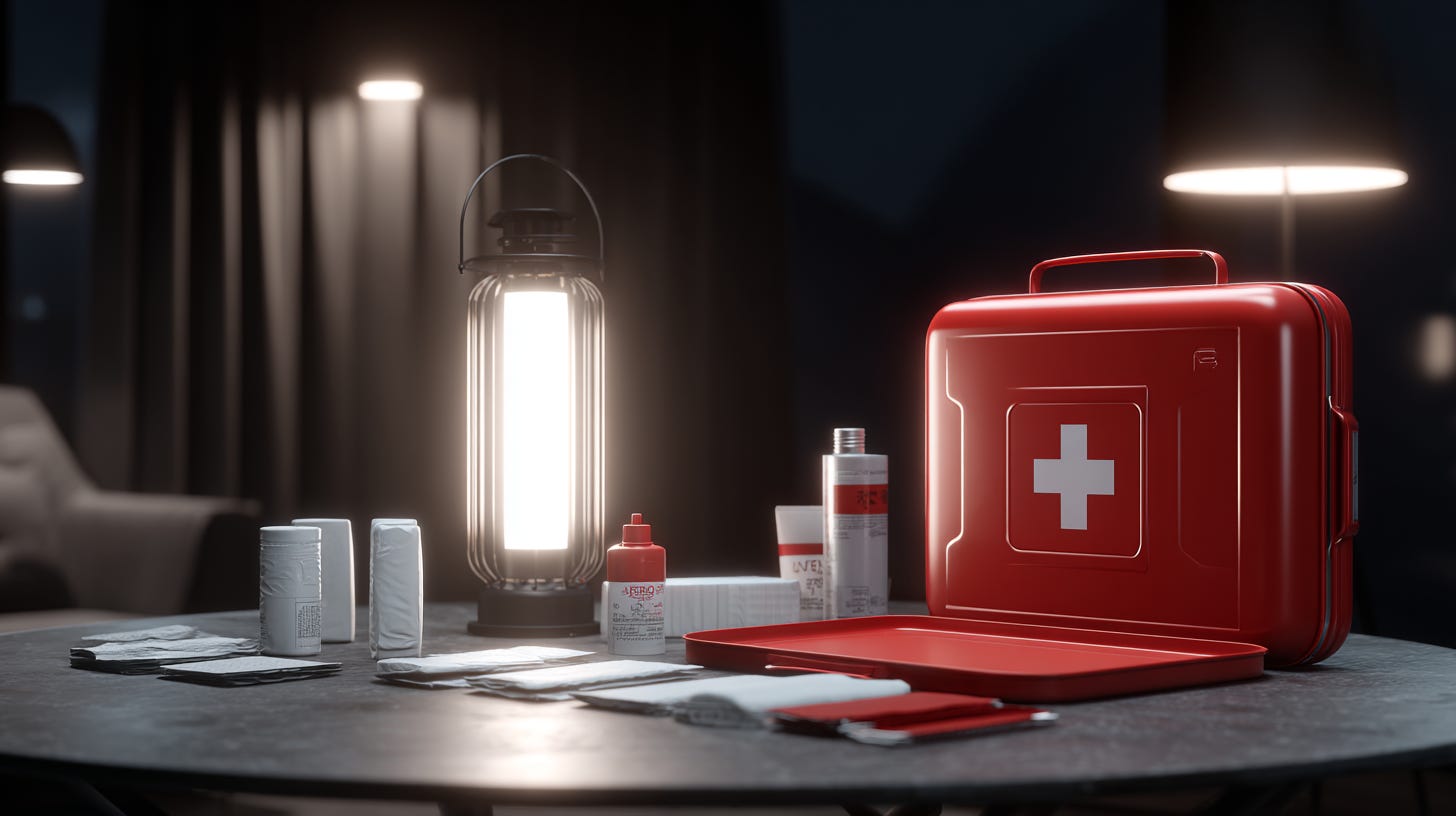Medical & Hygiene: Staying Alive When Help Isn’t Coming
In a collapse, the nearest hospital might be closed — or overwhelmed. Your skills and supplies become the frontline.
When systems fail, injuries and disease rise fast.
Hospitals get overrun, doctors disappear, and even small wounds can turn deadly.
That’s why medical and hygiene preparedness is one of the most important — and most neglected — pillars of survival.
Lessons From History
In every war, plague, and collapse, more people die from disease and infection than from bullets.
During the Balkan war, it wasn’t just violence that killed — it was untreated wounds, contaminated water, and poor hygiene.
Selco often wrote that even a small cut could become life-threatening without proper care. That lesson is just as relevant for us today.
Build Your Medical Foundation: Skills First
Before buying gear, invest in yourself.
At minimum, everyone should take a First Aid/CPR/AED course through the Red Cross or a local provider.
These skills save lives — not just in collapse scenarios, but every single day.
If you’re ready for more, consider “Stop the Bleed” courses and advanced first-aid training. Gear without skills is just dead weight.
Gear to Get: Build Multiple Kits
Medical gear isn’t one-size-fits-all.
What you need depends on your risks — urban violence, natural disasters, accidents, or just daily life.
And you need kits in multiple locations: home, car, workplace, and go-bags.
Everyday & Minor Care
Band-Aid Travel Ready Portable Emergency First Aid Kit — great for small wounds.
WaterWipes Sensitive+ Newborn & Baby Wipes — perfect for hygiene when water is scarce.
Trauma & Major Injuries
H&H Compact Wound Seal — compact, easy to carry.
North American Rescue HyFin Vent Chest Seal (Twin Pack) — for penetrating chest wounds.
First Aid Advanced Quick Clotting Combat Gauze or Quick Clot Gauze Stop The Bleed Kit — for severe bleeding.
Bleeding Control Kit for Limb & Torso Wounds — a comprehensive option for major trauma.
Hygiene: The Silent Killer
Medical care doesn’t stop with trauma. Poor hygiene can be just as dangerous.
Handwashing: The simplest way to prevent disease. Use soap or sanitizing wipes when water is scarce.
Waste management: Have a plan for human waste if plumbing fails. Buckets, heavy-duty trash bags, and bleach are cheap lifesavers.
Feminine hygiene: Stock what you need — reusable or disposable — before shelves go empty.
Practical Tips for Pathfinders
Take a Red Cross First Aid/CPR/AED course. Skills first, gear second.
Build multiple kits. Home, car, work, bag. Don’t put all your eggs in one basket.
Match kits to your risks. Trauma kits for violence-prone areas, smaller kits for daily scrapes.
Stock hygiene supplies. They prevent more illness than medicine alone.
Rotate and refresh. Check expiration dates, batteries, and restock items after use.
Skills, Not Just Stuff
Gear gives you options. Skills give you survival.
Learn the basics of bleeding control, wound care, and hygiene management now — before you need them.
Because in a real collapse, help isn’t coming.
Coming Next
In the next post, we’ll cover Personal Safety — navigating violence without losing yourself.
Subscribe and Stay Ready
This series is part of Urban Preparedness in Uncertain Times. Each post builds on the last to help you create a clear, practical plan for your family’s survival.
👉 Subscribe to Pathfinder Chronicles today and don’t miss the next post: Personal Safety.



